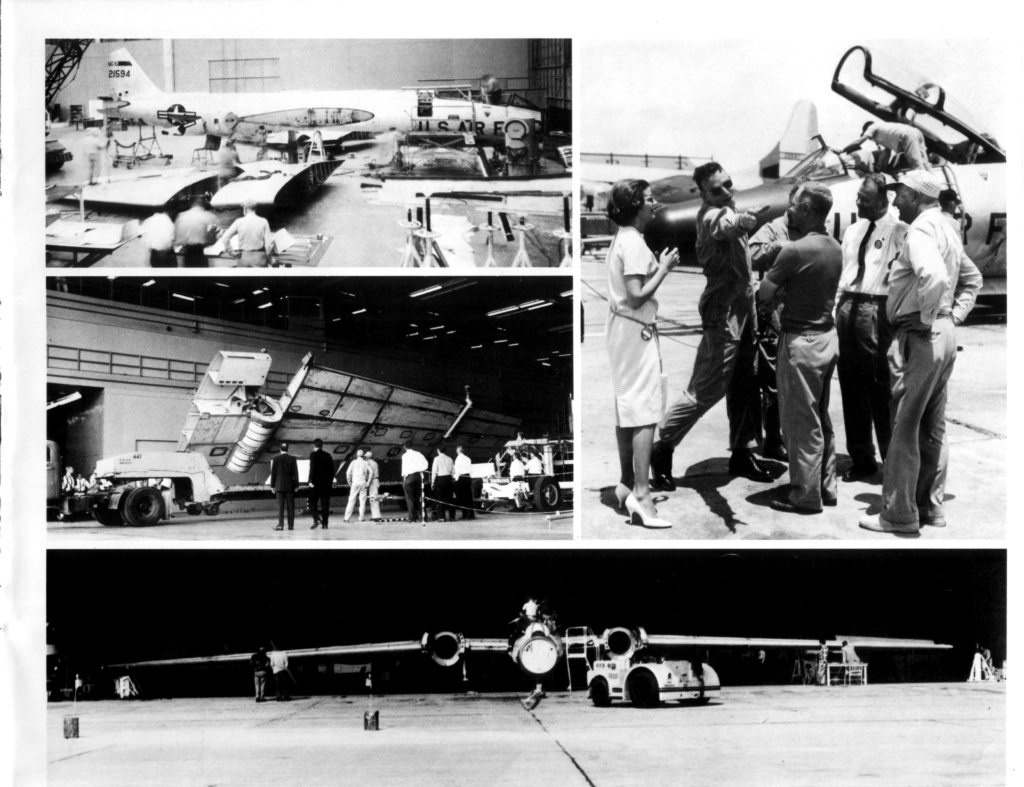Congratulations to Électricité de France on reaching 1600 MW of output at Flamanville 3, their first new power reactor in over 20 years, which had an unsurprisingly troubled gestation — condolences to NASA on having to move its Artemis 2 stack back from the pad to the VAB, due to problems with the “interim” cryogenic upper stage (with a brief meditation on just what interim may mean in this context), and having to rush an ISS crew change — more anti–nuclear terrorism, of a sort particularly difficult to understand — a description of a really lovely gift from tob — one thing more convenient than a railroad station hotel — a discussion of my further travel plans — an expression of confidence that my printer woes are at last over, and of gratitude to an angel of mercy who helped make that happen.
Tag: weekly post
ASFO 2026–02–21
Margaret “Tina” Thatcher, FenCon XXI and their Science Guest of Honor, the difficulties of fitting display materials into a very small borrowed car, and my continuing printer woes take up most of the time this week.
- Archive Recording
- 2026 ASFO Masterpost
- A Step Farther Out Masterpost
- Previous Week
- Following Week
- Patreon campaign
Supplementary Show
2026–02–27 (second part) Audio from four new film transfers : Atomic Power Comes of Age, a trailer for an article in the 1965 December Reader’s Digest ; Inside the Atom, an Encyclopædia Brittannica film ; Everyday Radioactivity, an introduction to gamma ray spectroscopy ; and How Much is Enough?, an introduction to the concept of statistical uncertainty in measurements, using radioactive counting rates.
ASFO 2026–02–14
Canada’s federalized inter–city passenger service, VIA Rail, differs from Amtrak in a couple of interesting ways. One of these is in providing trolley–style food service, rather than a dedicated snack car, at least in the Windsor—Quebec corridor, which is my only experience with it. Another is in having (again, at least in the Windsor—Quebec corridor) usable on–board Internet service. This, however, does not really excuse my annoying my fellow passengers by recording my show at my seat shortly before airtime, even in business class, where other passengers do not hesitate to get on conference calls and that kind of nonsense. Either way, this abbreviated show focuses mostly on my recent travels, and on a very cheering announcement this week of new nuclear power for Ontario.
ASFO 2026–02–07
The ethics of decarbonization, with aspects that perhaps don’t get enough discussion — the problem of funding scientific and technical research and development, in an international context — the South African peace dividend, the moral problem of the African National Congress, and the stupidity of attempts to sabotage the Koeberg nuclear power plant. And I don’t even get to talking about my new film transfers!
ASFO 2026–01–31
More evidence for my position that NASA should just pause operations during the last week of January and first week of February : a serious mishap to one of their three WB–57 Canberra high–altitude research aircraft. Also, my updated (and hopefully final!) travel plans, and a tiny bit of progress toward the token issue for the 75th anniversary of electric power generation by EBR–I.
- Archive Recording
- 2026 ASFO Masterpost
- A Step Farther Out Masterpost
- Previous Week
- Following Week
- Patreon campaign
Supplementary Show
2026–02–03 Audio from two recently–transferred educational films, The Transuranium Elements with Glenn Seaborg and collaborators, and Understanding Electricity.


ASFO 2026–01–24
Weather has disrupted my travel plans, and I spend most of the show talking about how that came about. Unfortunately the result of having to re–plan at short notice is a great deal of distraction and losing my train of thought, so I don’t manage to say much else of value.
ASFO 2026–01–17
NOBODY is going to Mars this year, for better or worse. I tell you how I know that. The launch vehicle for the NASA Artemis II mission is on its way to the launchpad, in preparation for a manned circumlunar flight which may launch sometime in the next three months, and a possible landing sometime in the coming years. Colour me unimpressed. Chancellor Merz of Germany admits that the nuclear exit was a mistake — again, colour me unimpressed. And I let you know of my upcoming travels, and my continuing anxiety over the US domestic and international political situations.
ASFO 2026–01–10
CRIMES against Peace — Lord Voldemort? — Nietzsche’s Superman as fast–food mascot — a brief discussion of the complicated situation in Venezuela — Putin working hard to get the spotlight back — escalating stupidity in Cowley County, Kansas — “carbon pollution”, literally — colossal stupidity in Japan — further progress, of a sort, with blast.
ASFO 2026–01–03
Senator Floyd Haskell provides an example of how not to do representative government ; controversy erupts in Cowley County, Kansas, and I suggest a rule which would substantially change the way “renewable energy development” is approached ; and some good news from Japan and South Korea, bad news from Belgium, and downright stupid news from the European Commission.
ASFO 2025–12–20
When the 30th Conference of Parties to the United Nations Framework Convenion on Climate Change spends virtually all its efforts on “Adaptation Finance”, you might be forgiven for thinking that plans for adaptation were already delineated and merely required financing ; and that, over the course of 30 years, plans for emissions reduction have been made and financed, and are well underway. Given that the Euratom Treaty is one of the three foundation documents of the European Union, you might be forgiven for expecting the European Commission to treat its obligation to produce, from time to time, an Illustrative Nuclear Program with utmost gravity and care. And yet…
- Archive Recording
- 2025 ASFO Masterpost
- A Step Farther Out Masterpost
- Previous Week
- Following Week
- Patreon campaign

